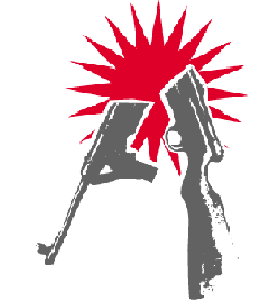Report:
UN Biennial
Meeting of States on Small Arms and the Programme of Action
7-11
July 2003
New York, USA
The UN Biennial Meeting of States on Small Arms and the Programme of Action was the first major follow-up to the 2001 UN Small Arms Conference. It took place at the UN headquarters in New York; USA, from 7-11 July 2003 and considered national, regional and global implementation of the Programme of Action (PoA) agreed at the 2001 UN Conference. Even though the meeting was primarily intended for States to report on their progress in this field, NGO's played an important role as an alternative source of information and as representing direct victims of Small Arms. They were represented by the International Action Network on Small Arms (IANSA), a coalition of over 500 civil society groups and peace activists from which the WCC is a founding member. In addition to a session on Thursday 10 July, devoted to NGO statements, a number of side events where organized by civil society, including a meeting of faith based organizations.

The conference showed that small arms proliferation and misuse is now firmly on the agendas of national and international governments. Nevertheless, most countries gave the impression of being still at the stage of developing ownership of the Programme.
Although states are
still far from achieving global legal standards, which would help keep small
arms away from human rights abusers, the UN Biennial Meeting of States on
small arms produced a number of significant outcomes, including:
The Biennial Meeting of States has shown clearly that such gatherings serve to engage governmental action by prompting discussion and reporting in the weeks and months prior to the meeting. There is a need to work towards keeping the attention of states on these issues once the meeting is over.
For more information on the conference please visit www.iansa.org and disarmament.un.org (where you can find the progress reports submitted by states).